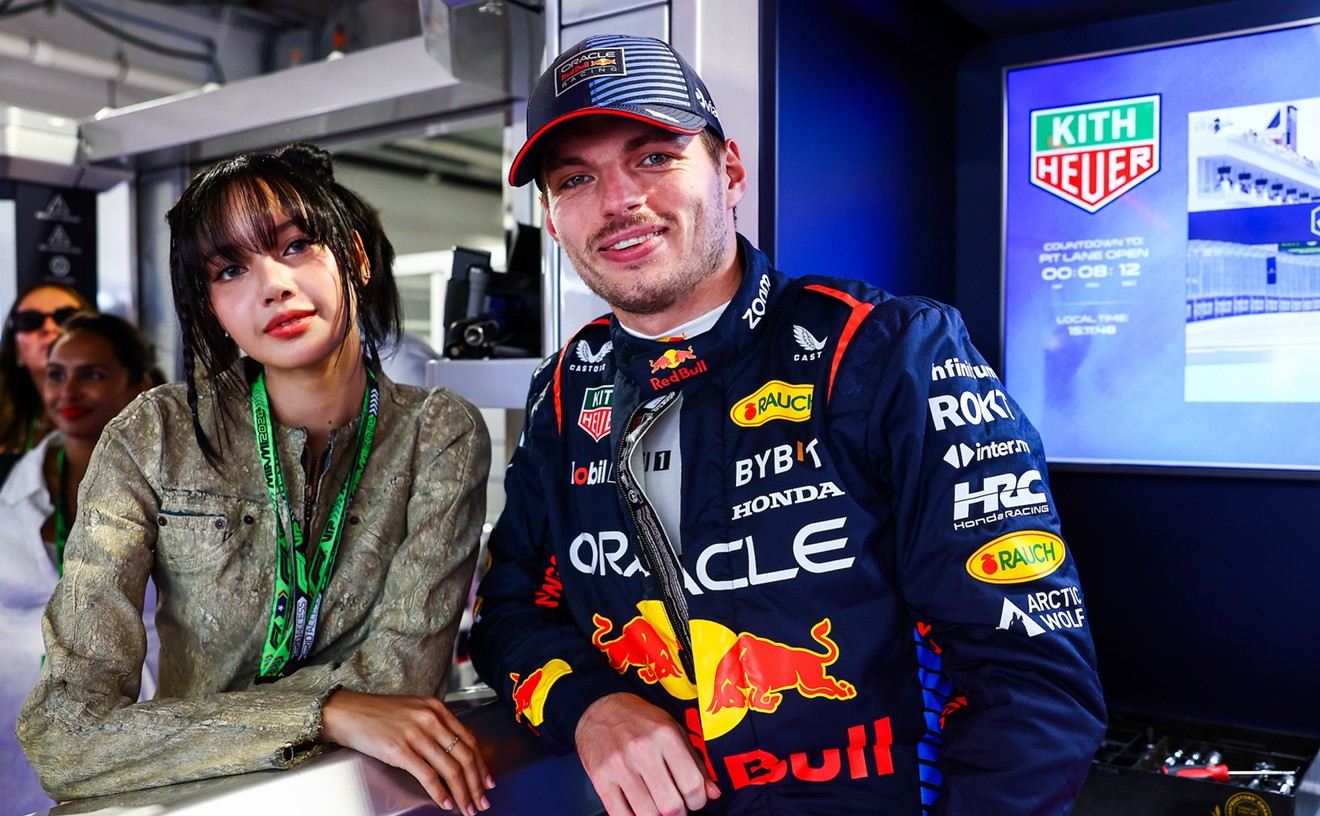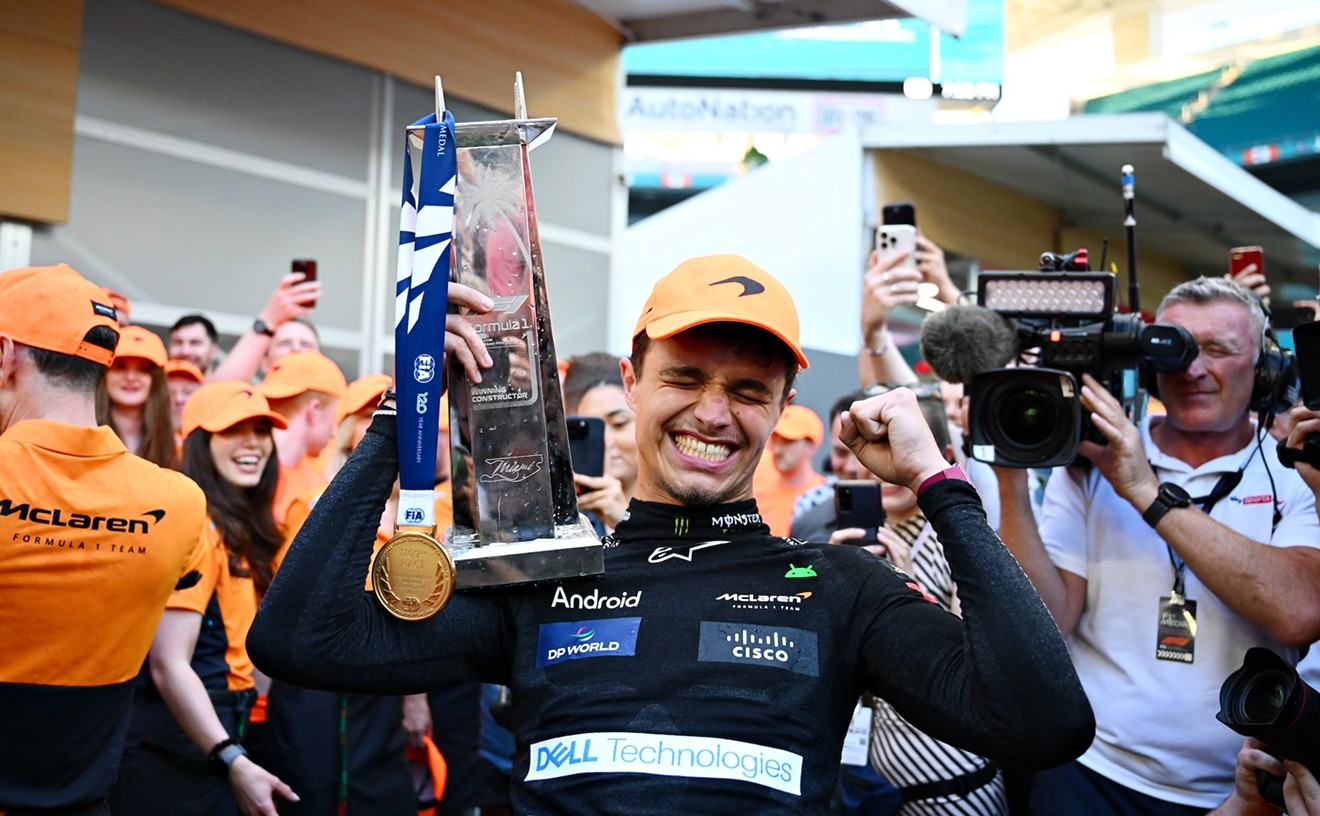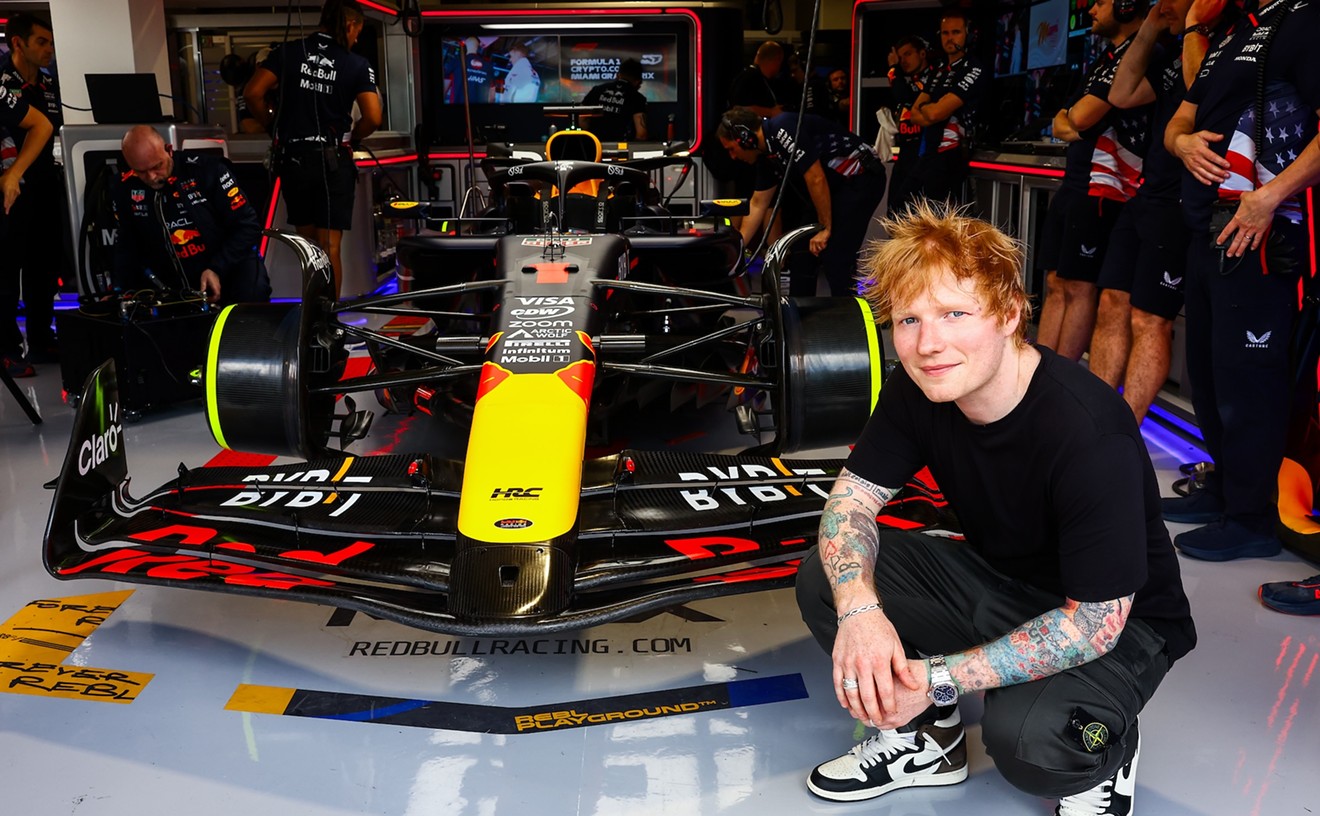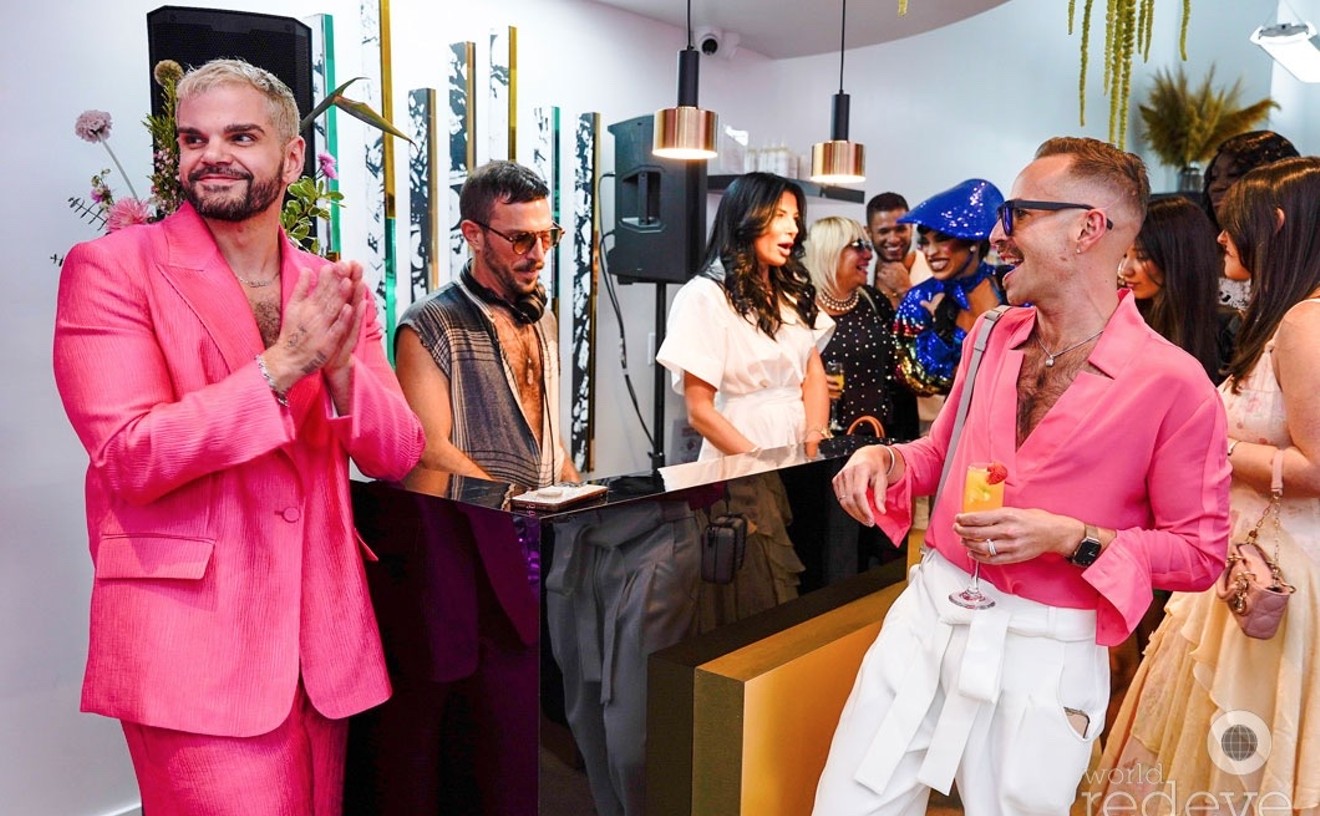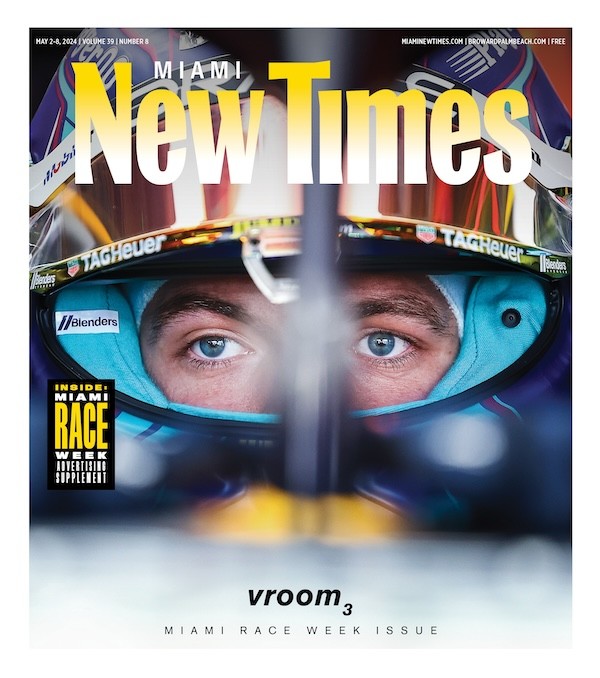Once again, with the last semi-chilly gasps of another weird year in this Magic City, we've arrived at that peak of cultural extravaganzas, Art Basel. It's the annual onslaught of the art world's best and brightest, what The Telegraph called "the Olympic Games of modern artistic commerce.
But while we're all fondly familiar with the tour de force of art shows that sweeps over our city each year, many Miami locals have only the faintest idea of Art Basel's namesake -- the town of Basel in Switzerland, where the art fair first originated.
So, being in the neighborhood (i.e. the European continent), it seemed reasonable to jump on a high-speed train to Switzerland and wander the streets in search of a little perspective into that city on the Rhine that gave birth to what's become the most amazing art show to grace our balmy shores.
As soon as you get off the train and start to walk around the city, one of the first things you notice -- besides, of course, how goddamn cold it is -- is the unbelievable amount of museums. There are museums everywhere and of every kind: puppet museums, pharmaceutical museums, architecture and design museums, and, most prevalently, art museums. There are more than three dozen museums in a city that's half the size of Miami Beach, and numerous private collections full of masterpieces by artists like Picasso, Modigliani, Miro, Rodin, and Degas, to name a mere fraction of them. One of these incredible collections can be found at the Fondation Beyeler, a museum started by Ernst Beyeler, one of the minds responsible for the founding of Art Basel in 1970.
Beyeler stands as a perfect illustration of the prevalence and importance of the arts to the culture in Basel. In one of the last passages of his biography, Ernst Beyeler - A Passion for Art, Beyeler responded to a question about his many titles and honors: "For me the greatest homage is that of the anonymous visitors who come from Munich, Paris, and elsewhere and who tell me that this is their sixth or even their tenth visit and that, each time they come, they feel different when they leave. That is what matters to me: excitement, a shared inspiration. The inspiration felt by visitors means more to me than praise."
And that really is one of the defining qualities of Basel: a profundity of successful people with a down to Earth kind of humility and restraint. There is an extraordinary amount of wealth in this town, and yet you hardly see anyone driving an expensive Range Rover or a flamboyant Ferrari. There aren't any obscenely opulent Star Island-esque mansions sprawled along the city. You can't find anything akin to the parades of wealth that are peppered all over South Beach because here, instead of showing how money they are, many of the rich and well to-do pour their francs into funding public art projects and paying for the founding of a new museum. The pieces of statuary and art installments around the streets are erected tastefully in ways that enrich their surroundings, there are no haphazardly placed 30-foot tall pieces Britto bullshit hulking garishly over street corners.
That's not to say that Basel is some sort of somber, dried out medieval town with no play in it. You can easily find yourself in colorful company, slamming your way from one bar to the next, freezing your ass off along the way, meeting odd folk from Los Angeles and Venezuela and Berlin. We heard wild tales of months exchanged in the town of Show Low, Arizona, where the youth, half-crazed with boredom, take to the streets in masks bearing the faces of "Madagascar" creatures, terrifying the townsfolk and being banned from Walmarts around the world for such madness. Walk into the right nightclub and you might have the manager of some member of the aristocracy's art collection, a 30-something year old Swiss with a Paul McCartney haircut and a demure sort reserve while he's on the clock, bobbing around to a DJ spinning "California Love", champaign cocktail in hand, and offering you a tab or two of the local acid from the depths of his burgundy-leather bound datebook. (Fun fact: Did you know Albert Hofmann's original synthesis of lysergic acid diethylamide in 1938 was concocted in a Basel laboratory?)
But drinking your way across this town isn't a cheap venture. In fact, hardly anything here could be described as cheap. Basel simply puts Miami to shame in terms of how expensive the city is. $4 for a Pan con bistec? Try $9 for a sausage from a street vendor and another $7 for a short glass of glüh wine to keep you warm. You want a white Russian at Le Cafe des Artes? That'll be $22, please. As Julien Pujol, a Parisienne Rick Ross fan on holiday put it, "I mean, these people make ballin' look easy. Actually, being a baller in Basel would be too played out. People are so rich, they're over the getting rich thing." The costliness is incredibly nonchalant and understated, though, just part of the day to day in Basel. There's nothing especially out of the ordinary about a shop selling handmade model trains in the Old Town for 700 Francs a piece, or an obscure little hole in the wall off of Gunderlingerstrasse or down a side street near Tellplatz Square with original Warhols and Lichtensteins hanging for sale in the window. I've been told the 1,000 franc note is the most common note in circulation by far, which makes art buying all the more convenient.
So how do we connect our city to this place? We're loud and unrestrained and flashy as all hell, so how on earth is it that the people running Art Basel settled on calling Miami Beach their sister city for the art fair? One interesting similarity is that the local dialect is called Basel German, a fast iteration of the mother tongue with less annunciation that most Berliners find incomprehensible. Essentially, this is Hialeah German.
And according to Dorothee Dines, public relations manager for Art Basel and current enjoyer of our lovely winter as I freeze my ass off in the Hinterlands, Miami Beach and Basel have come to share more and more over the last 10 years. "Basel and Miami Beach are both nexus cities. While Basel sits in the middle of Europe, Miami Beach attracts visitors from across the United States and from Los Angeles to Chicago to New York...Basel has a rich cultural history with leading art museums, institutions and foundations. If you look back at the past decade, you will notice a great transformation in the cultural scene of South Florida and Miami Beach. The city has become a true nexus between the art scenes of North America and Latin America. Major private collections including the De la Cruz Collection Contemporary Art Space, the Cisneros Fontanals Art Foundation, Rubell Family Collection, World Class Boxing, and the Margulies Collection enlarged their presence in Miami Beach and their reputation across the world."
From Dines perspective, high up on the MCH Groupe-Art Basel ladder, Miami Beach looks like it's set to keep moving towards the vibrant sort of arts scene that makes Basel such a fascinating place. "Art Basel in Miami Beach is entering its second decade and looking back at these past ten years, Miami Beach has changed so much, it really has become a cultural hub, and not only in December. Looking at how much Miami Beach has achieved in only 10 years, it will be very interesting to follow the cities development in the future."
And considering the fact that the city of Basel has been around, in one form or another, since 374 AD, I'd say our 97-year-old neophyte of a nexus city has a good bit of catching up to do -- a prospect that sounds very much like something to look forward to.
Follow Cultist on Facebook and Twitter @CultistMiami.





